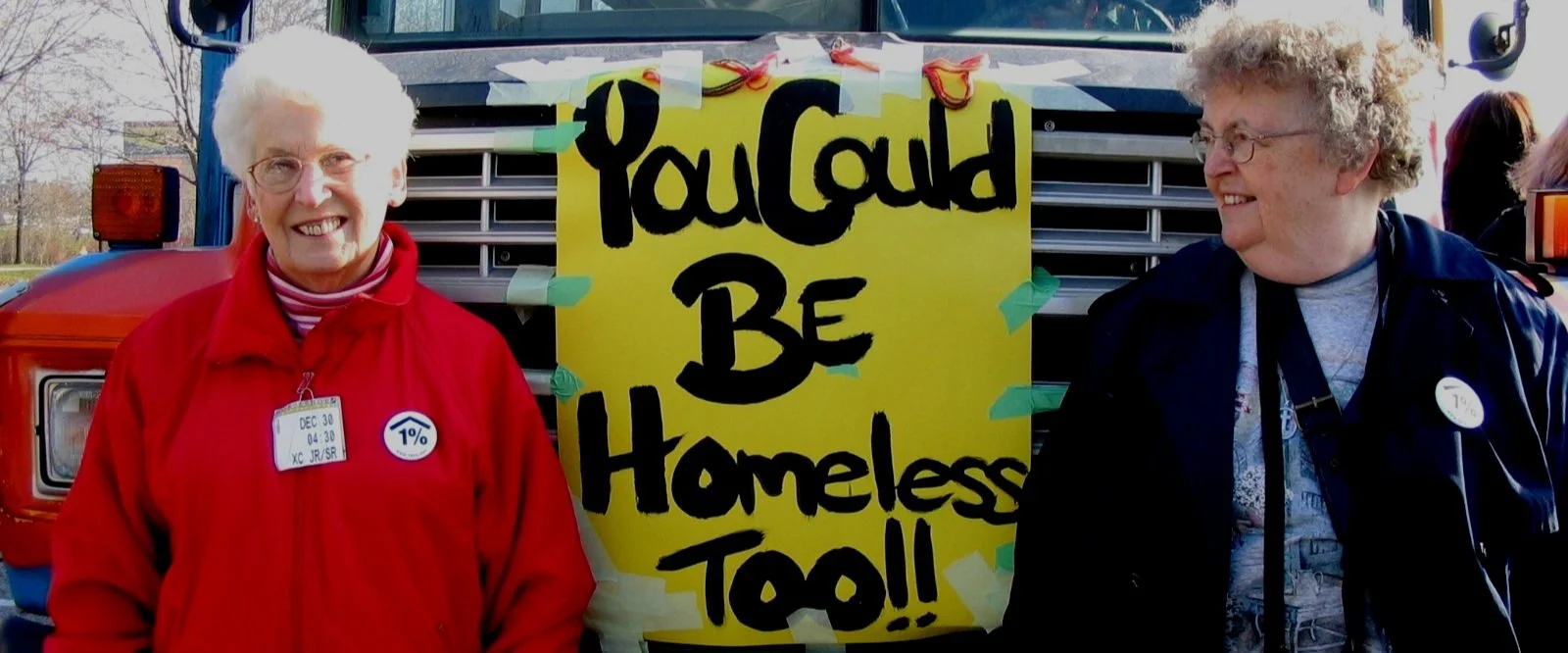Sr. Rosemary O’Toole, community and friends recently celebrated the completion of her 4 volume book set exploring the spirituality inspired by Jesuit priest, Jean Pierre Medaille. Exploring the energy of Love that can carry us personally and collectively in this 21st Century, Rosemary delves into the 400-year-old original writings, while letting the spirit of evolutionary consciousness shine new light.
Visit to the Le Puy Archives
Sr. Mae Kierans shares her experience of the 2019 International Workshop “From the Archives to History”
Participants tour the historical Scenography in the Le Puy CSJ Motherhouse Museum
The program was organized at the International Centre for CSJ archivists who have no professional training but who are in charge of or just starting an archive, and for persons who have an interest in archives. Thanks to a USA benefactor, ten scholarships were offered to Sisters from Congregations in Africa, India, South America, the USA and Canada.
The workshop presenters, both Sisters of the Institute of Sisters of St. Joseph in France, were Soeur Catherine Louis, steeped in the history and spirituality of the Sisters of St. Joseph and Soeur Nadia Boudon-Lashermes who teaches history and geography. Both Sisters had participated in the recent and extensive development of the modern historical scenography display in the Le Puy Motherhouse museum.
The presenters spoke in Frenchwith simultaneous translation into Portuguese, Spanish and English by three Sister translators and using headphones. Morning presentations emphasized the importance of archives as a tool of remembering the patrimony of our past; what makes up their composition (records, artefacts, etc.), and the important role of the archivist as guardian of the historical present day realities so that we can advance knowledgably into the future.
Participants worked on actual historical documents for critical analysis in order to establish the facts of past events. For example we were given two differing historical accounts of the foundation of a women’s congregation. Which one was true? Another paper for small group analysis was the documentation by a local parish priest of the succession of superiors in the CSJ Community at Bas en Basset from the mid 1600’s to late 1700’s, illustrating the evolution of governance styles. The participants worked in the four small language groups to assess the value of these documents and their veracity in the case of competing narratives and then reported findings back to the large group.
Afternoon field trips out to Le Puy, the well-preserved medieval city birthplace of the Sisters of St. Joseph were rich in history: Romans once occupied the city which was a religious centre. Today it is the beginning of the French Compostela, whose museum also we explored. Participants walked the narrow streets in the footsteps of Jesuit founder of the Sisters of St. Joseph, Jean Pierre Medaille (1618 – 1689) visiting the Jesuit house where he stayed in Le Puy, the nearby St. George’s Jesuit Church where he offered Mass and also visiting the first convent. In the Motherhouse, they visited the original seventeenth century convent kitchen. The recently updated historical scenography in the museum space of the Motherhouse was captivating with its modern multi-media exhibits and historical artifacts.
The experience of being with other CSJ archivists and living an international experience for a week deepened our appreciation of the blessed 350+ year history of the Sisters of St. Joseph.There were 26 Sisters of St. Joseph from Mexico, Madagascar, Brazil, Argentina, Congo, France, India, Lebanon, Egypt, Burkina Faso, USA and Canada sharing how in different cultures, their charism of unity and reconciliation is creatively and faithfully expressed.
Celebrating Mother St. John Fontbonne
Mother St. John’s mission in action: she gathered women ‘without distinction,’ bringing different ages and classes together under one roof; the workshop included women whose resources permitted them to work on behalf of the poor, mothers who needed to work for their children and finally, young women who were apparently on their own. With such diversity, this group not only produced artisan goods but also brought together people who given their social differences, would rarely gather socially. Thus, while the nation was feeling the tensions of class divisions, and increasing poverty, the Sisters of St. Joseph in Monistrol were forging community.
From Anything of Which Woman is Capable, Mary M. McGlone, CSJ, pages 42 – 43
We rejoice and celebrate Mother St. John’s witness to passionate and unifying love, without distinction.
Office for Systemic Justice Newsletter
Click the link to view a copy of the October 2019 Office for Systemic Justice Newsletter.
October Blue Community Newsletter
Click the link to download a copy of the October Blue Community Newsletter









